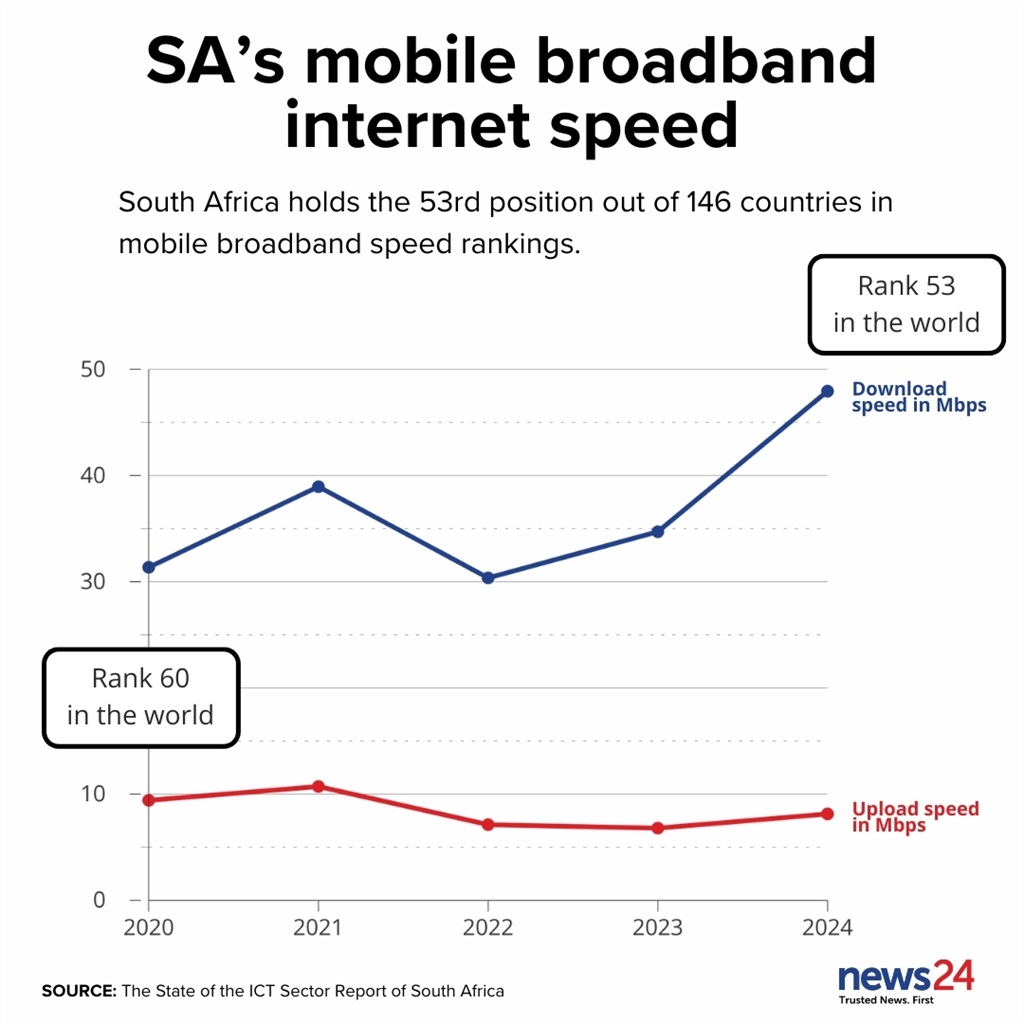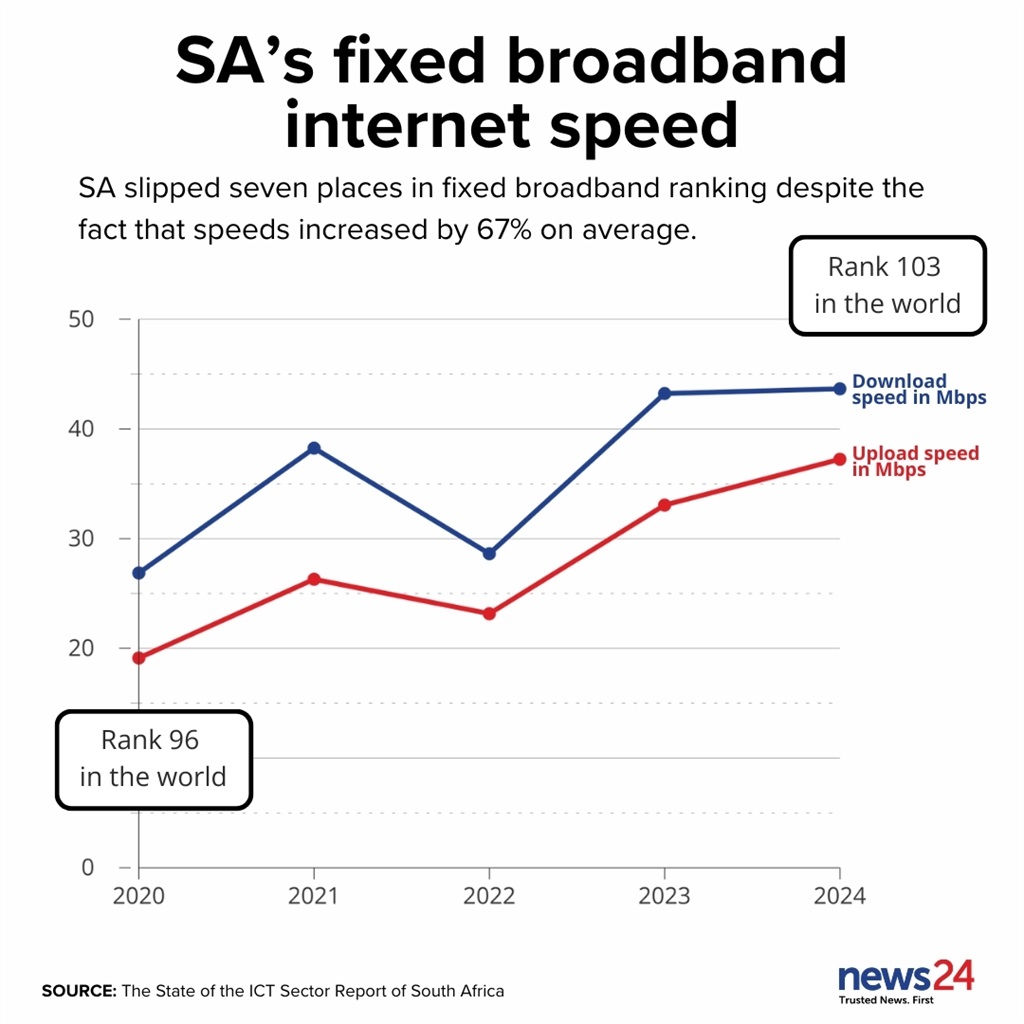SA internet speeds are getting faster - but that doesn’t matter too much anymore

- Internet speeds have improved significantly in South Africa in recent years.
- But ordinary users are not likely to notice a difference.
- SA slipped down global rankings for speed in one category.
- For more financial news, go to the News24 Business front page.
Internet speeds have improved significantly in South Africa, but most people won’t be able to notice the difference.
The Independent Communications Authority of South Africa (Icasa) released its State of ICT report which compiled internet speed test data from speed testing site OOKLA over the last five years.
The speed test data showed sharp increases in the internet speeds of fixed and mobile broadband over the period. OOKLA captured median internet speeds based on the speed tests conducted through the site.


(Graphic: Sharlene Rood/News24)
(Graphic: Sharlene Rood/News24)
Mobile broadband allows people to access the internet through a cellular network, accessible over the large area where the network operates. Fixed broadband services are only accessible at fixed locations, like at home, a mall, or an office.
Despite speed increases in both categories, South Africa’s international ranking moved in different directions for the categories.
South Africa slipped slightly down the fixed broadband OOKLA ranking and moved up a few places on the mobile ranking.
It must be noted that the figures are captured through speed tests on the OOKLA platform, which is useful for indicating trends but is not necessarily reflective of the median speed across the country.
While it is a good thing on paper that speeds have increased, Paul Colmer, an executive committee member at the Wireless Access Providers Association, explained that most people were unlikely to notice big differences from the speed increases.
He explained that any speed difference at the lower end of the scale, smaller than 5 Mbps, will make significant observable differences to users.
"At 1 Mbps it takes about three seconds to download a web page. At 2 Mbps it gets better, then 3 Mbps it gets better, then 4 Mbps and 5 Mbps it's better. But suddenly between 5 Mbps and 6 Mbps, the difference is minimal, and between 6 Mbps and 10 Mbps, it's negligible," he said.
Colmer explained that you only really need a 5 Mbps line to stream in HD, and and will be able to stream 4K content on a 25 Mbps line.
According to Colmer:
Why do we want to go any faster? Because for an individual, there is nothing they could possibly want to do that requires that amount at that speed. If you want to go faster, get the latency down. Don’t worry about the speeds. It’s bragging rights.
He said that the faster bandwidths were relevant when there are a significant number of users.
He added that the priority in South Africa should be driving prices down and expanding network access to help more people get access to the internet.
We live in a world where facts and fiction get blurred
Who we choose to trust can have a profound impact on our lives. Join thousands of devoted South Africans who look to News24 to bring them news they can trust every day. As we celebrate 25 years, become a News24 subscriber as we strive to keep you informed, inspired and empowered.
